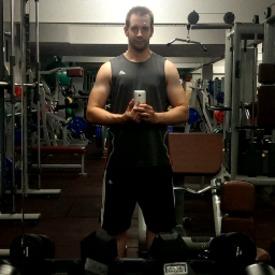slow and steady vs rapid fat loss

chrisdavey
Posts: 9,834 Member
http://gregnuckols.com/2013/06/04/slow-and-steady-weight-loss-i-think-not/
Thoughts?
I believe, RFL makes the body primed for fat storage as soon as "normal" cal levels return.
Thoughts?
I believe, RFL makes the body primed for fat storage as soon as "normal" cal levels return.
0
Replies
-
Have to agree with you Chris.
I can only go by my own experience and those of people I know who have tried both and I honestly can't think of one instance in which RFL for an extended period was a good idea for the long term.
There's also the question of how you come out of that RFL period too.
Current argument about returning quickly to maintenance kcals to return hormone levels to normal vs reverse dieting slowly to minimise fat gain.
Sure it is a trade off (I like the slow and steady approach in both directions for long term success).
But I think if you were to do a RFL for a period, you'd have to go back up slowly by default otherwise it's a massive fat gain rebound risk.
Probably also depends on your starting point and capacity at that time too.
Slow and steady usually wins the race in the end though for most people.0 -
Great post Chris.
I'm thinking about this. Will try to formulate some thoughts soon.0 -
That's what I thought too Viv.
Basically, coming out of a RFL diet, I have found hunger to be well and truly off the charts high! So it is all well and good in theory to say that it would be best to slowly reverse but in reality that is tough to do.
Also, the fact that the refeed from RFL when I have done it is very high carb, I've found that these typically make me extra hungry the next day anyway.0 -
That's what I thought too Viv.
Basically, coming out of a RFL diet, I have found hunger to be well and truly off the charts high! So it is all well and good in theory to say that it would be best to slowly reverse but in reality that is tough to do.
Also, the fact that the refeed from RFL when I have done it is very high carb, I've found that these typically make me extra hungry the next day anyway.
^ Yeah that's got to suck being in a position where a refeed makes you hungrier. On a relatively sane energy deficit, a solid refeed blunts hunger the following day for me, quite reliably.0 -
Interesting.
I think I'm yet to have a solid science backed reefed though. I think one time I've kept fats below 100g (aiming for 50g). That is with around 1000g of carbs normally. Most times, I just end up eating everything for the day.
Don't know why that would be exactly as you'd think the GI tract would be chockers haha. I always wake up starving (which is not usualy for me). I also don't IF on refeed days as that would just be ridiculous.0 -
I don't know Chris. Sure, the amounts you put away on refeed day would keep me going for a week lol
But I understand that eating more makes you hungrier too, especially after a severe diet period.
the only refeeds (also not science backed) I've done in the past have been around 1RM testing times, during which I ate a lot for me but was always hungry regardless.
I've reset my macros just this week and only down to 1500kcals per day but I'm starving and go to bed hungry every single night. It's killing me.
Not sure why when I used to struggle to eat that amount per day. It's hard to do the high volume low kcal thing though which I'd normally do if lowering overall calories because my carbs have decreased. Low joule fat? not really possible
I'm looking to slowly reverse up and hopefully fix whatever went screwy last year after a period of low average kcals for a while due to stress and stuff.0 -
I think the two biggest hurdles with this approach are knowledge and discipline.
Most of us discussing this understand the (at least basic) theory behind fat loss, understand macros and their respective roles, have a handle on what a sound diet looks like, maintenance vs deficit etc etc. The issue is that the vast majority of people do not understand these concepts let alone able to apply them in an extreme diet such as a PSMF.
We know that if you go through this type of diet that supplementation is crucial (particularly EFAs), and that a slow 'reverse diet' is the optimal way to ween off a diet plan like this without significant fat gain. We also know to expect an increase in scale weight as soon as CHO is reintroduced and not panic etc.
In my opinion you need a decent level of nutritional knowledge, and a decent understand of your own physiology and how your body adapts to certain stimuli, to even think of attempting something like this. If you don't have the base of knowledge (and a decent relationship with food) you're setting yourself up for failure with any VLCD or similar crash type diet.
The second aspect is discipline. You can have all the knowledge in the world, but if you don't have the discipline to stick to a strict diet (and lets face it, most don't), then this is a bad idea. I know that I could not personally stick with an RFL or PSMF diet for long enough, and coming off the diet and ramping up my calories slowly would be like torture to me.0
This discussion has been closed.


